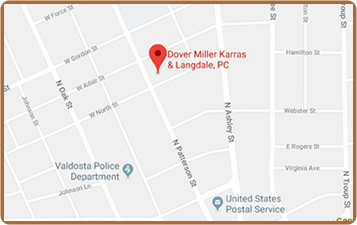Identity theft is a crime in which someone wrongfully obtains and uses another person’s personal information in some way that involves fraud or deception, typically for economic gain. Credit card fraud, together with thefts from checking and savings accounts represent around two-thirds of the estimated 10 million identity thefts perpetrated upon Americans each year. Cleaning up the mess identity thieves leave behind can be a very stressful experience that can cost you time, money, and access to credit. The best strategy for dealing with identity theft is prevention.
Here are several ways identity thieves may try to obtain your personal information:
- Finding personal information on the Internet.
- Rummaging through your trash for personal information.
- Stealing your mail.
- Stealing your wallet or purse.
- Stealing your debit or credit card numbers.
- Luring you into providing personal information by “phishing,” a scam in which the identity thief sends an email falsely claiming to be from a legitimate organization, government agency, or bank.
- Diverting your mail to another location by submitting a change of address form to the post office.
If your identity has been stolen, here’s what to do:
- Report the crime to your local police immediately and ask them to issue a police report. Keep a copy of your police report to share with your creditors.
- Contact the fraud departments of the three major credit bureaus (Experian, Equifax, and TransUnion) and ask them to flag your file with a fraud alert and to include a statement that creditors should get your permission before opening any new accounts in your name. Placing a fraud alert is free and will entitle you to a free credit report from each bureau.
- Check your credit report carefully and look for items that you do not recognize.
- After thoroughly reviewing your credit report and documenting incorrect information:
- Contact your creditors, your bank, your utilities, and all service providers and let them know that your identity has been stolen.
- Contact the Internal Revenue Service if you suspect the improper use of your identification information in connection with tax violations.
- Contact the post office to find out if anyone has submitted change of address forms on your behalf.
- Create an identity theft report. Keep all documentation and log all telephone calls you make regarding the theft.
The best way to deal with identity theft is to avoid it completely. Here are some helpful prevention tips:
- Use strong passwords on your debit card accounts, credit card accounts, and online accounts.
- Do not allow anyone to access your email account. Do not open attachments from unknown email accounts.
- Install computer virus and spam protection software on your computer.
- Lock and password-protect your cell phone.
- Do not carry PIN codes or passcodes for your debit or credit cards with you.
- Leave your Social Security card at home except when you absolutely need to use it.
- Do not leave your checkbook, credit cards, or financial papers lying around where they could end up in the wrong hands. Many identity theft victims are familiar with the person who steals their personal information.
- Shred any documents you are discarding that may contain important personal information, including credit card statements, bank statements, cancelled checks, credit card convenience checks, and new credit offers you get in the mail.
- Never give your personal information (such as social security number, credit card number, or bank account number) over the phone, in the mail, or on the Internet unless you are the one initiating the contact.
- Watch for signs of identity theft, like:
- Bills and other financial statements do not arrive in the mail as scheduled.
- Checks are missing from your checkbook.
- You receive credit cards for which you did not apply.
- You are denied credit, or offered less favorable credit terms, like a high interest rate, for no apparent reason.
- You are getting calls or letters from debt collectors or from businesses about merchandise or services you did not buy.
- Review a copy of your credit report at least once each year. You can get one free credit report every year from each of the three major credit bureaus. Be cautious of websites that claim to offer free credit reports. Many of these sites will only give you a free report if you buy other products or services. Others will give you a free report and then bill you for services you have to cancel. To get the free credit report authorized by law, go to AnnualCreditReport.com.
- Notify the credit bureau in writing of any questionable entries and follow through until they are explained or removed. Do not respond to unsolicited offers to provide copies of your credit report.
